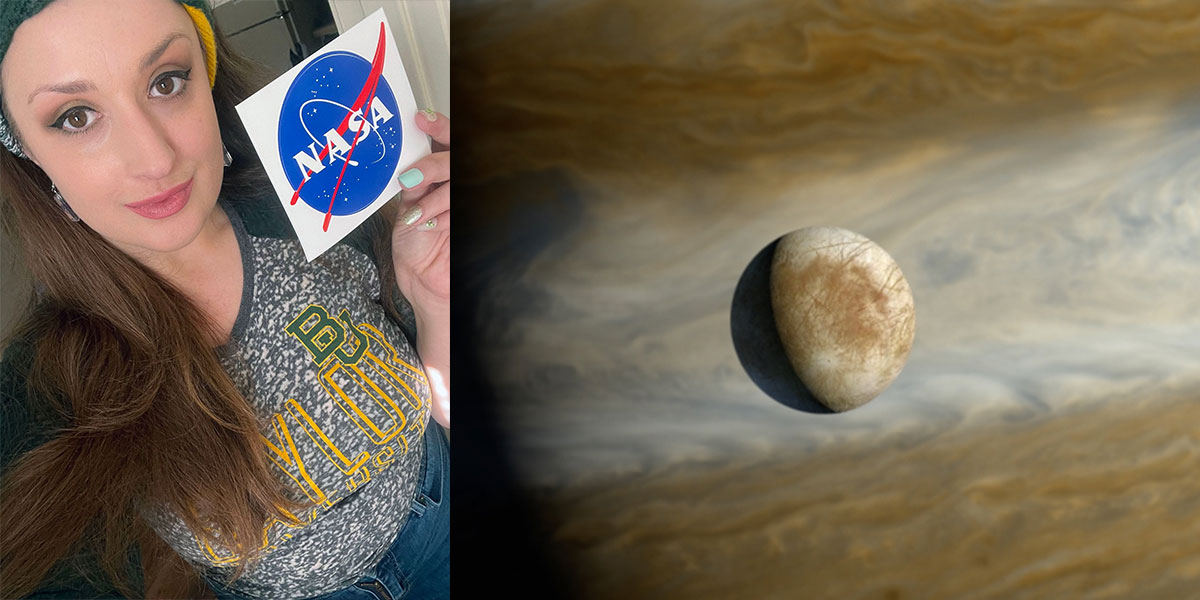Baylor PhD student’s work studying one of Jupiter’s moons earns national honor

When NASA released surface images of Pluto in 2015, the world was enthralled with the never-before-seen beauty of the dwarf planet. But it was much more than that for Alyssa Mills, then an undergrad at the University of Maryland (and now a Baylor Ph.D. candidate). The high resolution photos unlocked Mills’ academic passion — and now, she’s an award-winning geophysicist.
“In undergrad, I had plans to be an astronomer. I wanted to study black holes and dark matter, but struggled with the theoretical aspect of them,” Mills says. “When I saw the images of Pluto, I was fascinated by the physical nature of the planet and enjoyed the tangible science behind planetary elements.”
Since then, Mills has taken a particular interest in cryovolcanic structures and icy areas on planets and moons alike. Her research has elevated the way geophysicists map planetary terrains and understand the processes occurring below the moons’ surfaces. She has participated in five internships with NASA’s Jet Propulsion Laboratory and Goddard Space Flight Center.
Most recently, Mills mapped a geological feature called ‘chaos’ on Europa, one of the four Galilean moons surrounding Jupiter. Her work earned her recognition as one of 11 students nationwide to be named a John Mathers Nobel Scholar. The honor includes a $3,000 scientific travel grant over a two-year period.
“It’s important to study these icy regions in our solar system because they inform habitability,” says Mills. “Beyond Earth, Europa is considered one of the most promising currently habitable environments in our solar system. Below Europa’s icy surface, evidence suggests there is a global ocean with more water than all of Earth’s oceans combined.
“As a planetary geophysicist, I’m a geologist who mainly sits at a computer; I don’t travel like a normal geologist would,” she continues. “This award allows me to attend conferences, discuss my research, and learn from others in my field all over the world. I’m so grateful to be a recipient and propel my findings forward.”
Sic ’em, Alyssa!

